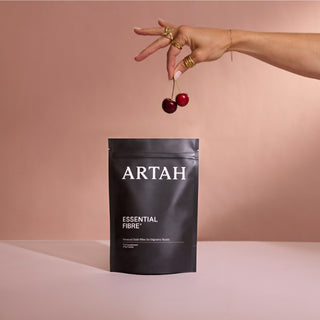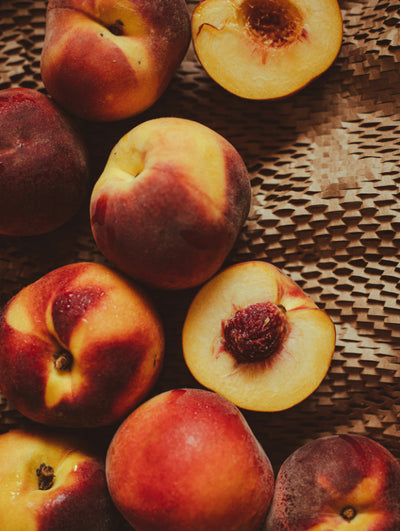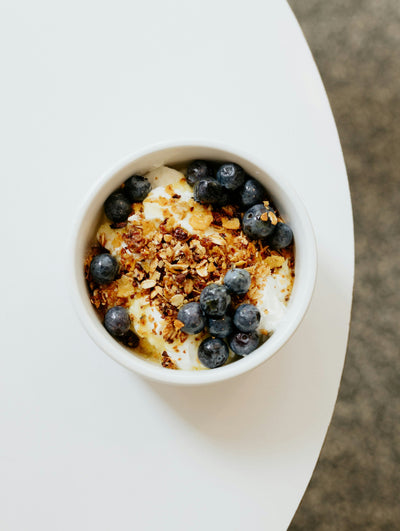Most of us are are pretty aware of the stressors in our lives – whether it’s work pressure, juggling family commitments, relationship issues, health issues, or just a general feeling of not enough hours in the day, certain challenges are obvious stress triggers. But what if we told you that there’s something else that most of us experience which can, and does, exacerbate stress exponentially?
Hydration Status: Stressed
Every organ in our body requires water to function properly, and the brain is no exception. Our hydration status can alter how efficiently our cells are able to function and communicate with each other, which is why it’s no surprise that dehydration is perceived as a physical stress on the body and activates our stress response. In fact, studies reveal that even slight decreases in total body water can significantly elevate cortisol, our stress hormone. (1) Our brain is 75% water and requires adequate hydration to produce energy. Even with subtle changes in hydration energy production in the brain can be impaired, leading to changes in mood and cognition; feelings of anxiousness, low mood and poor sleep quality are linked to poor hydration. (2)
The Cycle of Stress
Stress is a tricky one. Once our stress response is activated, our body’s natural responses to that stress tend to create, well, even more stress. So, whilst dehydration triggers stress and anxiety, anxiety and stress can also trigger dehydration, perpetuating the stress-dehydration cycle. (3) Stress-induced symptoms like elevated heart rate, sweating, heart palpitations, lack of sleep, and even anxiety attacks can cause us to lose both fluids and electrolytes. (4) Heightened stress may also drive a surge in behaviors that exacerbate dehydration; excess consumption of caffeine, alcohol, and sugary foods can all lead to a less-than-perfect hydration status. (5)
The Importance of Electrolytes
Electrolytes are essential minerals that play a role in virtually all aspects of our health; they help regulate acidity and pH in the body, maintain hydration, are essential for muscular contraction and physical activity, play a major role in a healthy nervous system and cognitive function, to name a few. When it comes to hydration, electrolytes help maintain fluid balance and will essentially direct water where it needs to go, so whilst it's important to drink water to stay hydrated, hydration status is also linked to electrolyte levels. (6) Because of this, inadequate electrolytes can heighten our vulnerability to stress.
Sodium is the electrolyte that most people know about, but Magnesium, Potassium, and Calcium are other primary electrolytes, and together, they play a major role in how we feel and function. Magnesium alone is essential for over 300 reactions in the body and is involved in mood, stress, sleep and metabolism; so, you can start to see how important it is to maintain electrolyte balance. (6) Other electrolytes include Chloride, Phosphorous, and Bicarbonates.
Potassium is a core electrolyte that is often overlooked, but it is critical for nervous system function, cognitive health, mood, and stress regulation. (7) Both chronic stress and anxiety deplete potassium, and dietary surveys consistently show that the majority of people, and women in particular, aren't hitting the RDA for potassium.
How to Optimise Your Hydration:
Water, then coffee: when we wake, we’re naturally dehydrated from sleeping. This is from fluid lost through respiration throughout the night, so one of the most impactful things we can do when we wake is focus on hydration. Whether you prefer water alone, with a squeeze of fresh lemon, or with unsweetened electrolytes like Cellular Hydration, starting the day with 500ml of water (before your caffeine) can make the world of difference.
Introduce foods with a high-water content: such as watermelons, peaches, lettuce, cucumber, broth-based soups, broccoli, and celery, which further contribute to total body water.
Try electrolytes: our basic requirements for electrolytes are quite high - for example, while a banana is touted as being a potassium superfood, one banana delivers just 11% of our RDA, so there's a way to go when it comes to intake. If you follow a low carbohydrate diet, exercise regularly, participate in endurance sport, or are under chronic stress, electrolytes can be particularly beneficial for energy. Electrolytes are also an important player in long-term cognitive health; studies have shown that increased intake of Potassium, Calcium, and Magnesium reduce the risk of all cause dementia. (11) Try Cellular Hydration, which includes vital electrolytes Potassium, Magnesium, Calcium, and Sodium.
Increase Magnesium and Potassium-rich foods: Potassium rich foods include leafy greens, tomatoes, courgette, pumpkin, carrots, bananas, beet greens, salmon, white beans, avocado, potatoes, mushrooms. Magnesium rich foods include spinach, pumpkin seeds, lima beans, tuna, almonds, chickpeas, tofu, cashews, oats, other legumes, and raw cacao.
Enhance water flavour by infusing it: if you’re not a big water lover, try using fruits and vegetables like cucumbers, lemons and oranges to make hydration more enticing.
Reduce alcohol and caffeine: especially when chronically stressed and in hot climates; alcohol and caffeine act as diuretics, removing fluids from the body at a faster rate than other drinks. Alcohol in particular can also prevent us absorbing the nutrients and water from food.
Reduce UPF: as if the list of benefits from avoiding ultra-processed foods wasn’t already long enough, they can also affect our hydration. They’re often unnaturally high in sodium, low in water, and high in sugar; the perfect storm when it comes to dehydration. In addition, UPFs have been shown to increase inflammation, which in turn affects our hydration status.
The information is presented in this article is for educational purposes only and is not intended to diagnose, prevent, or treat any medical or psychological conditions. The information is not intended as medical advice nor should it replace the advice from a doctor or qualified healthcare professional. Please do not stop, adjust, or modify your dose of any prescribed medications without the direct supervision of your healthcare practitioner.
References
-
Nabi H, Hall M, Koskenvuo M, Singh-Manoux A, Oksanen T, Suominen S, Kivimäki M, Vahtera J. Psychological and somatic symptoms of anxiety and risk of coronary heart disease: the health and social support prospective cohort study. Biol Psychiatry. 2010. 15;67(4):378-85.
-
Tardy AL, Pouteau E, Marquez D, Yilmaz C, Scholey A. Vitamins and Minerals for Energy, Fatigue and Cognition: A Narrative Review of the Biochemical and Clinical Evidence. Nutrients. 2020. 16;12(1):228.
-
Kocalevent RD, Hinz A, Brähler E, Klapp BF. Determinants of fatigue and stress. BMC Res Notes. 2011.20;4:238.
-
Liska D, Mah E, Brisbois T, Barrios PL, Baker LB, Spriet LL. Narrative Review of Hydration and Selected Health Outcomes in the General Population. Nutrients. 2019 Jan 1;11(1):70. doi: 10.3390/nu11010070. PMID: 30609670; PMCID: PMC6356561.
-
Strazzullo P, Leclercq C. Sodium. Adv Nutr. 2014 Mar 1;5(2):188-90.
-
Kowey, P.R. The Role of Potassium. In: Lobo, R.A., Crosignani, P.G., Paoletti, R., Bruschi, F. (eds) Women’s Health and Menopause. Medical Science Symposia Series, 2002. (17).
-
Pickering G, Mazur A, Trousselard M, Bienkowski P, Yaltsewa N, Amessou M, Noah L, Pouteau E. Magnesium Status and Stress: The Vicious Circle Concept Revisited. Nutrients. 2020. 28;12(12):3672.
-
Rosinger AY, Chang AM, Buxton OM, Li J, Wu S, Gao X. Short sleep duration is associated with inadequate hydration: cross-cultural evidence from US and Chinese adults. Sleep. 2019 Feb 1;42(2). doi: 10.1093/sleep/zsy210. PMID: 30395316.
-
Zaplatosch ME, Adams WM. The Effect of Acute Hypohydration on Indicators of Glycemic Regulation, Appetite, Metabolism and Stress: A Systematic Review and Meta-Analysis. Nutrients. 2020; 12(9):2526.
-
Liska D, Mah E, Brisbois T, Barrios PL, Baker LB, Spriet LL. Narrative Review of Hydration and Selected Health Outcomes in the General Population. Nutrients. 2019 Jan 1;11(1):70. doi: 10.3390/nu11010070. PMID: 30609670; PMCID: PMC6356561.
-
Vintimilla RM, Large SE, Gamboa A, Rohlfing GD, O'Jile JR, Hall JR, O'Bryant SE, Johnson LA. The Link between Potassium and Mild Cognitive Impairment in Mexican-Americans. Dement Geriatr Cogn Dis Extra. 2018 Apr 24;8(1):151-157. doi: 10.1159/000488483. PMID: 29805381; PMCID: PMC5968281.



















































